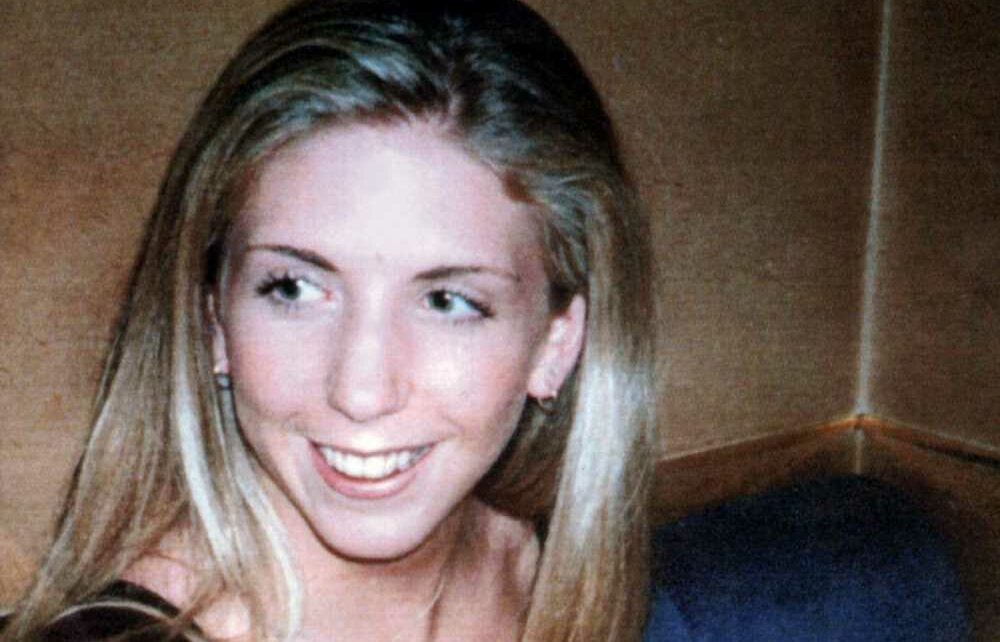A new Netflix documentary titled Missing: The Lucie Blackman Case, delves deep into the disappearance of a young British woman in Japan.
The investigation uncovered one of the most shocking criminal cases in Japanese history.

Who was Lucie Blackman?
Lucie Blackman was a 21-year-old British woman who went missing in 2000.
She previously worked as a flight attendant for British Airways before deciding to work at the Casablanca nightclub in Tokyo, Japan.
While working at the club, she would go on paid dates with customers and accompany them to dinner and then to the club.
But one particular date on July 1 turned out to be the last time that Lucie would ever be seen alive.
Read More on Lucie Blackman

Inside dad’s hunt for sick playboy killer who stashed daughter’s head in concrete

Lucie Blackman’s grieving dad pleads to keep man who dismembered her in jail
The shocking disappearance is the subject of the new Netflix documentary Missing: The Lucie Blackman Case.
What happened to Lucie Blackman?
On July 1, 2000, Lucie went on a date with a customer and made several calls to a friend, Louise Phillips, who had travelled to Japan with her.
After their date, Phillips received a call from a man who told her that she had joined a cult and that Louise would never see or hear from her again.
Phillips contacted Lucie’s family who flew out to Tokyo in hopes of finding her.
Most read in The Sun

Teen girl's evil brother GUILTY of her murder after vile sex attack

Shock u-turn as huge ITV star 'is in talks to return to This Morning'

Greek firefighting plane crashes after clipping tree while dousing wildfire

Big Brother legend Helen unrecognisable 22 years after quitting fame
Desperate to find their daughter, Lucie's family began a media campaign to raise awareness about her disappearance.
The then-prime minister, Tony Blair, also promised to raise the issue with his Japanese counterpart at a G8 summit.
One month after her disappearance, Korean-Japanese property developer, Joji Obara, became a suspect.
While he admitted to meeting Lucie, he denied being involved in her disappearance.
Then on February 9, 2001, seven months after her disappearance, Lucie's body was found buried in a cave near a beach 30 miles south of Tokyo.
Her body had been cut into 10 pieces and was badly decomposed, which meant the cause of death at the time could not be determined.
In April 2001, Obara was arrested over Lucie’s death.
Where is Joji Obara now?
As a result of the publicity around Lucie's case, three women came forward to describe waking up in Obara's bed with no recollection of the night before.
He was reported to the local police several times, but no further actions were made.
This was until the police began to join the dots between cases involving a man calling himself Nishita and Joji Obara, who was using the name as an alias.
In October 2002, Obara was charged with drugging, raping and killing Lucie.
But in 2007, he was acquitted of Lucie's rape and murder due to lack of direct evidence.
Following criticism around Lucie's case, an appeal trial was held in March 2008.
Obara was then found guilty and jailed for abducting Lucie and dismembering and disposing of her body.
He was also charged with killing Carita Ridgway in 1992 and raping eight other women.
It is believed that he raped between 150 and 400 women in Japan, using the drug chloroform to aid his attacks.
Obara would record his crimes on videotape and kept a diary detailing his actions, leading police to believe he may have up to 400 victims.
Read More on The Sun

Shoppers are hurrying to B&M to snap up £1 bargain buy to transform their garden

I’ve found the best lido for kids…it was so fun & under threes go free
Obara is now serving his life sentence in prison.
In 2010, the Supreme Court of Japan rejected his appeal.
Source: Read Full Article
